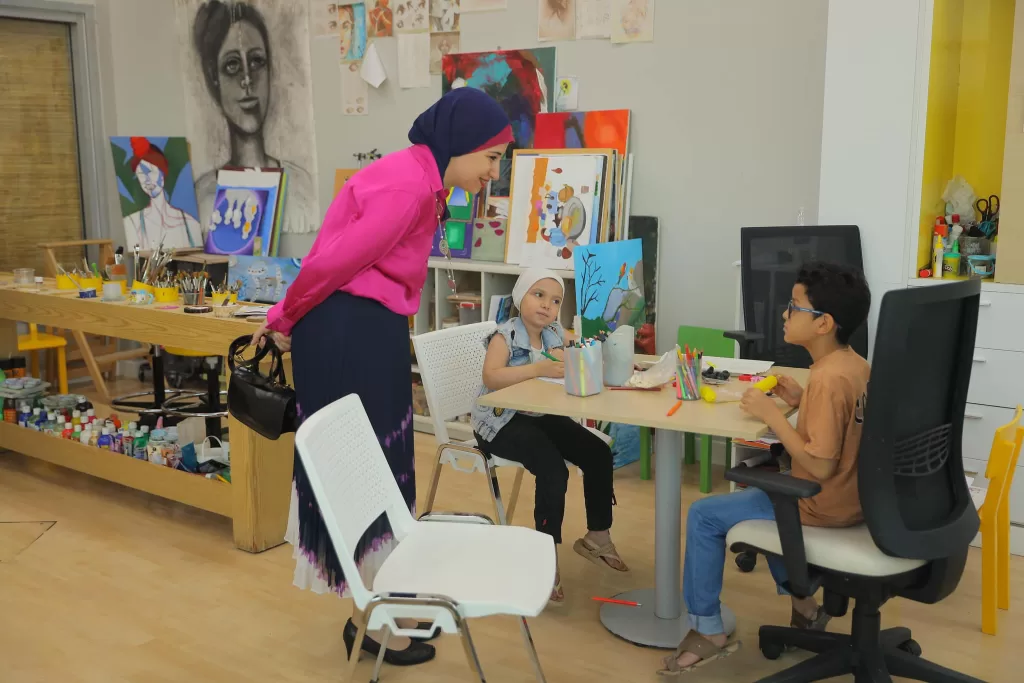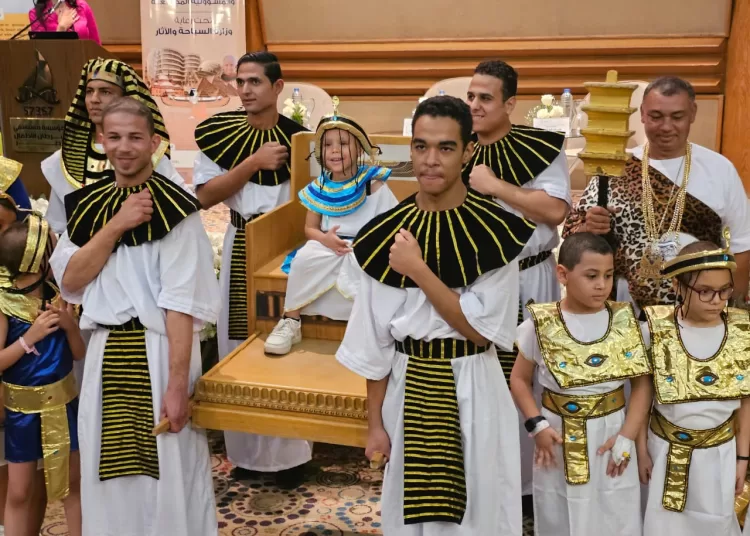A parade of children and young people dressed in Pharaonic costumes streams into the hall to the sound of ancient Egyptian music, proudly carrying 4-year-old Yamen, who is sitting like a royal figure on a coronation chair.
Yamen’s face shines with happiness as the audience erupts in applause upon hearing the announcement of his triumph over cancer.
The little boy was a guest at the inaugural forum on tourism and social responsibility, organised on Sunday at Children’s Cancer Hospital Egypt 57357 (CCHE 57357), supported by the Ministry of Tourism and Antiquities on the occasion ofthe World Tourism Day.
Founded to offer a cutting-edge facility for young cancer patients, the non-profit CCHE 57357 took its vision from a proposal by Professor Reda Hamza in 1995. The Association of Friends of the National Cancer Institute (AFNCI), established in 1998, was pivotal in elevating paediatric cancer care.
International support comes from the Egypt Cancer Network entities in the US and Canada, funding treatment, research, education, and training. Focusing on innovation, education, and superior care, the hospital offers free services aimed at easing the burden of cancer on children and their families.
Sherif Abulnaga, the CEO of CCHE 57357, highlighted the hospital as an emblem of collective resolve.
Contributions poured in from across Egypt and around the world, facilitating the hospital’s construction solely through philanthropic donations, he said.
This unified effort by Egyptians of all walks of life was instrumental in achieving a state-of-the-art paediatric oncology hospital, paving the way for a hopeful future for children confronting cancer.
“The hospital now accommodates 13,633 patients, conducts 350,000 chemotherapy sessions annually, and performs 6,000 operations each year. Of the patients admitted to 57357, 35 per cent are diagnosed with advanced-stage disease,” Abulnaga said.
The CCHE 57357 is the largest paediatric oncology facility by capacity, offering 300 beds since its opening in 2007, Abulnaga said.
“Since inception, CCHE 57357’s mission has centred on offering outstanding, comprehensive care and healing opportunities. The hospital continually provides a full spectrum of advanced diagnostic and therapeutic services, including chemotherapy, radiotherapy, surgery, bone marrow transplants, multidisciplinary clinics, physical rehabilitation, socio-psychological support, palliative care, survivorship programmes, and educational opportunities,” Abulnaga pointed out.
“After 17 years, the hospital has reached an average survival rate of 71.4 per cent by 2023,” he noted.
The venture aims not only to boost childhood cancer survival rates in Egypt from an estimated below 40 per cent to reach the 80-85 per cent seen in Western countries but also to introduce a pioneering healthcare model grounded in cutting-edge scientific practices, according to Abulnaga.

During the forum’s side events, the Tourism Ministry organised various initiatives to boost the industry and archaeological awareness among children. One highlight was an engaging virtual reality experience, allowing children to explore simulations of Egypt’s most significant archaeological sites and tourist attractions.
Yomna El Bahar, Deputy Tourism Minister, said that the Ministry, through the Egyptian Tourism Authority, is hosting a variety of engaging activities for children that blend fun with learning.
These include museum and archaeological site tours, workshops focused on ancient Egyptian culture and awareness, creative artistic sessions, competitions, and the distribution of gifts to the young participants.
“These visits significantly help reduce the stress and trials children endure during their treatment and bolster their self-esteem and resilience in facing their illness,” she said.






Discussion about this post